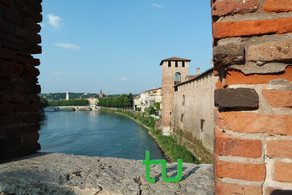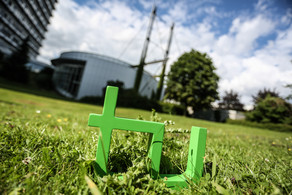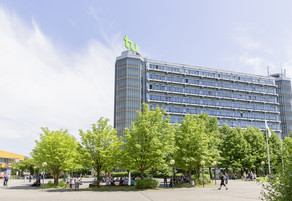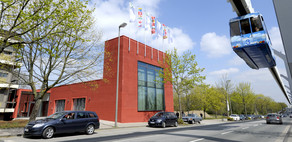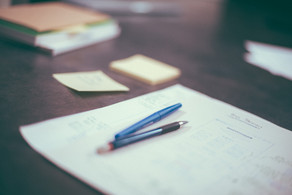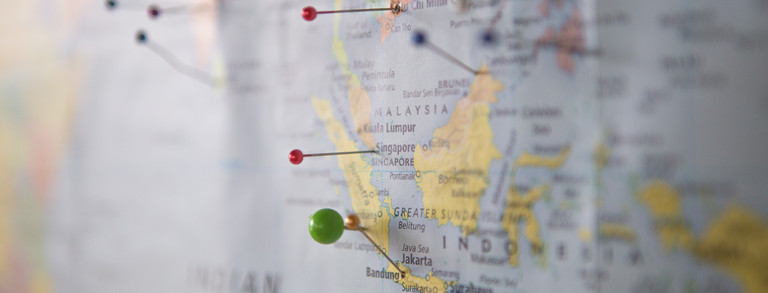Lecture Series on Internationalization
In the winter semester 2021/2022 the online lecture series was held for the first time. A series of 8 lectures provided information on the many aspects, measures and services related to the topic of internationalization at TU Dortmund University. The lectures were aimed at interested researches and administrative staff.
The internationalization of science and research as well as of studies and teaching is a cross-sectional task that is implemented at TU Dortmund University by various fields of work and actors. The lecture series "Internationalization" starts here and would like to give an insight into the diverse offers at TU Dortmund University.
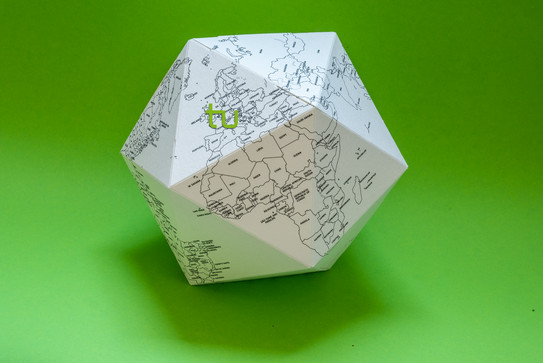
Lecture Topics at a Glance
The lectures provided first-hand information and tips, including the services of the International Office, the implementation of an international master's program and funding formats for research stays abroad. The following overview gives an idea of the topics that were presented.
The International Office is responsible for providing support and advice to international students and visiting scientists who are studying and researching in Dortmund, as well as advising Dortmund students who would like to study or do an internship abroad. Employees of the departments can obtain information here about TU Dortmund University's international alliances with universities. Internationality is a high priority at TU Dortmund University. This is also evident in the numerous international events organized by the International Office.
As a follow-up to the event, you may also consult the website for information on services and offers of the International Office.
The department of Physics offers a new international Master's program „Advanced Methods in Particle Physics“ starting in the winter semester 2021/2022. The program is supported by the physics departments of the University of Bologna in Italy, the University of Clermont Auvergne in France and TU Dortmund University and is supported by internationally renowned partner institutions. TU Dortmund University is the spokesperson for the program. The Master's degree is a joint degree of all three universities ("Joint degree").
In this lecture, Prof. Kröninger from the Department of Physics, who conceived the new course of studies with his international collaboration partners and accompanied it from the very beginning, shared his experiences. In addition to the preparations and the elaboration of the study program, Prof. Kröninger also reported on the challenges and hurdles that had to be overcome during the development phase.
An important component in the internationalization of universities is the establishment and implementation of joint strategic partnerships and cooperation projects. Erasmus+ offers various instruments and program lines for this purpose, with which partnerships and cooperation projects of individual departments can be supported. These projects, which the departments can design and apply for themselves, take place far away from student and staff mobilities and are largely unknown in the departments.
Ms. Schmidtpeter from the Office of Research Support Services and Ms. Viol from the International Office presented central program lines and provided an overview of the possibilities. The Office of Research Support Services offers support for the application of such projects.
International master programs contribute significantly to the internationalization of universities. In this lecture, Prof. Groll, Department of Statistics reports on his experiences in establishing and operating the international Master's program Data Science.
Network with colleagues from other universities in Europe through a teaching staff mobility or look over the shoulder of a colleague and thus bring back new impulses for the work at TU Dortmund University - the EU education program Erasmus+ promotes cross-border mobility not only of students, but also of academic and non-academic staff. The funds are applied for centrally every year, so that mobilities can be supported with travel and accommodation costs.
In this lecture Mrs. Viol from the International Office presented the options for academic and for non-academic staff of TU Dortmund University.
A semester (or year) abroad should not prolong your studies. Transferring credits plays a major role in this. With the obligation in the ECHE a recognition in the Erasmus program is guaranteed, but how can this be implemented and what possibilities do students have who go abroad with another exchange program to recognize the study achievements.
Mrs. Viol from the International Office discussed the question whether departments have to recognize achievements made abroad and shared tips how this can be implemented.
Whether networking at conferences, collaborating with international experts, experimenting on large-scale equipment, working in archives or doing field research: international mobility during and after the PhD offers researchers a variety of advantages for their research and further career path.
With this lecture, Ms. Schmidtpeter from the Office of Research Support Services and Dr. Benjamin Brast from the Graduate Center, offered PhD students and postdocs an overview of the most common funding opportunities. Participants learned about the most important funding bodies and got to know which formats they can use to efficiently implement their plans.
The Welcome Services team of the International Office supports international researchers in all aspects of their research stay at TU Dortmund University. The lecture offered the participants the opportunity to learn more about the range of services and to connect with the team of the Welcome Services.
You did not have the opportunity to participate in the lectures or would like to follow up on a lecture and take a look at it again? Use the opportunity and access the recorded lectures and presentations (in German).

![Eat & Read [Translate to English:]](/storages/international/r/Bilder/Veranstaltungen/Eat___Read/waffel_plain_buecherturm.jpg)




